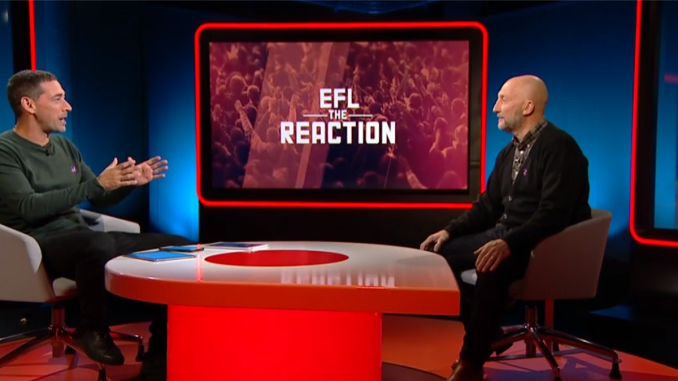
Sunderland Facing Potential Points Deduction Amid Leeds United Petition: Analyzing the Possible Repercussions

Sunderland AFC could be at risk of a points deduction due to a formal petition filed by Leeds United, bringing fresh concerns for Sunderland’s campaign and sparking a debate about fairness, accountability, and the effects of inter-club disputes in the English Football League (EFL). As both clubs strive to make their mark in the EFL Championship, this legal entanglement raises the stakes and threatens to destabilize Sunderland’s season.
### Understanding the Background of the Leeds United Petition
Reports indicate that Leeds United filed a formal complaint to the EFL, urging an investigation into specific incidents or management decisions at Sunderland. Though details about the exact nature of the allegations remain somewhat unclear, there is speculation that Leeds has raised questions about Sunderland’s compliance with certain financial or operational regulations.
Such disputes aren’t entirely unprecedented in the Championship, as clubs often appeal to the EFL in cases where they feel that competitors have violated fair play guidelines. Typically, these cases involve issues like financial misconduct, including breaches of the league’s financial fair play (FFP) rules, or accusations related to operational transparency and ethics. Leeds’ petition, however, adds a unique twist to the usual process, given that these kinds of inter-club disputes rarely go as far as prompting points deductions.
### What Are the Potential Grounds for a Points Deduction?
For a points deduction to be sanctioned, the EFL would need to conduct a thorough investigation and determine that Sunderland breached league rules in a manner that significantly impacted the fairness of competition. Common grounds for such penalties often involve:
1. **Financial Misconduct**: This includes failure to comply with FFP rules, which are designed to prevent clubs from overspending beyond their revenue. However, there have been no official statements suggesting that Sunderland has violated FFP guidelines to this point.
2. **Regulatory Violations**: The EFL mandates strict compliance with operational rules, ranging from player registration protocols to maintaining transparency in club transactions. Should Leeds’ petition allege any such breach, the EFL’s investigation would examine whether Sunderland’s actions compromised competitive integrity.
3. **Contractual or Managerial Discrepancies**: A club can face penalties if they breach contractual agreements related to player transfers, managerial appointments, or compliance with league policies. There are, however, no publicly reported incidents suggesting that Sunderland has committed these kinds of violations.
### The EFL’s Points Deduction Precedent
The EFL has previously imposed points deductions on clubs for various forms of misconduct. For instance, Derby County and Sheffield Wednesday have both faced points deductions in recent seasons, largely due to financial irregularities. These cases illustrate the league’s commitment to upholding fair play, although they also highlight the challenges clubs face when they operate under tight financial constraints.
That said, points deductions often lead to significant backlash from fans and sometimes from club ownership as well. Critics argue that such penalties disproportionately impact players and supporters, who bear the consequences of decisions made by a select few within club management. However, proponents of points deductions argue that they are necessary to deter clubs from violating regulations, thereby protecting the integrity of the league.
### Possible Outcomes for Sunderland
If the EFL were to find Sunderland guilty of a rule breach, a points deduction could range from minor (three points) to severe (up to 12 points), depending on the severity of the violation. A major deduction could hinder Sunderland’s progress this season, especially given the highly competitive nature of the Championship. The team’s current form and league standing would play a role in determining the impact of any deduction, as dropping points at a critical juncture could mean the difference between a promotion push and a relegation struggle.
However, many factors could play to Sunderland’s advantage. If the EFL investigation finds insufficient evidence to support the allegations, the club may avoid a penalty altogether. Additionally, Sunderland’s recent strides toward financial transparency and operational reform may work in their favor, potentially mitigating the risk of a severe punishment.
### Reactions from Sunderland and Leeds Fans
The petition has generated mixed reactions among the fanbases. Leeds United supporters, eager to see their club gain a competitive edge, largely view the petition as a justified action, particularly if it results in penalties that improve Leeds’ standings. Some Leeds fans argue that clubs should be held accountable and that the EFL should enforce regulations without bias.
On the other hand, Sunderland fans have expressed frustration and even anger, viewing Leeds’ actions as an unnecessary interference in their club’s affairs. Many fans have taken to social media to defend Sunderland’s integrity and protest what they perceive as a tactic to derail their club’s success. Some supporters believe the EFL should focus on more pressing issues within the league, rather than facilitating disputes between rival clubs.
### Potential Implications for the EFL and Future Cases
This situation could have wider implications for the EFL as it seeks to balance regulatory enforcement with preserving the spirit of competition. If the EFL sides with Leeds and issues a points deduction, it may set a precedent where clubs feel emboldened to file complaints against their rivals. This could lead to an environment where clubs frequently petition the EFL over minor grievances, thereby undermining the stability and camaraderie that underpin the league.
Conversely, if the EFL dismisses Leeds’ petition, it could signal to clubs that the threshold for filing successful complaints is high, thus dissuading frivolous petitions in the future. Striking the right balance is crucial for the EFL, which must maintain its commitment to fair play while preventing unnecessary disruption to the league.
### The Road Ahead: Awaiting the EFL’s Decision
Sunderland’s fans, players, and management now face a period of uncertainty as the EFL deliberates over the petition and potential penalties. Although it remains unclear how long the investigation may take, it’s likely that the EFL will aim to conclude its review promptly, given the implications for both clubs.
In the meantime, Sunderland will continue to focus on their Championship campaign, with the hope that their performances on the pitch can offset any off-field distractions. As the league waits for the EFL’s verdict, fans from both clubs will be watching closely, eager to see how this situation unfolds and what it may mean for the future of inter-club petitions in the English Football League.
Regardless of the outcome, this case underscores the complexities of enforcing fair play in a league that balances fierce rivalries with strict governance.

Leave a Reply